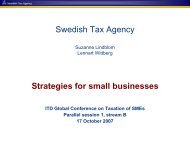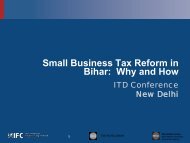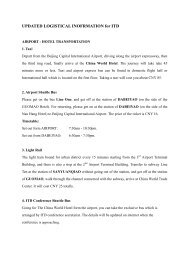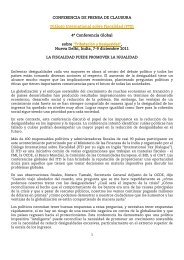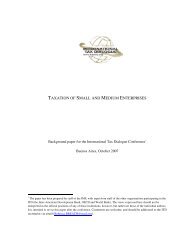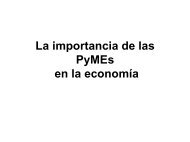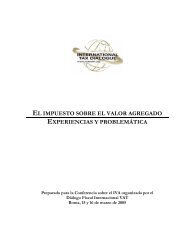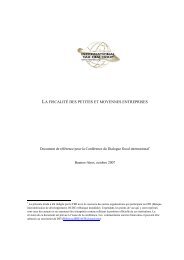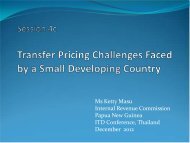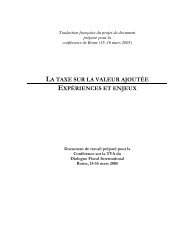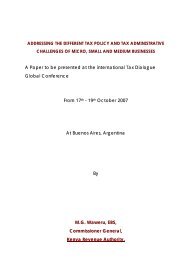Arcotia Hatsidimitris - International Tax Dialogue
Arcotia Hatsidimitris - International Tax Dialogue
Arcotia Hatsidimitris - International Tax Dialogue
You also want an ePaper? Increase the reach of your titles
YUMPU automatically turns print PDFs into web optimized ePapers that Google loves.
5. MAINTAINING PROGRESS, TACKLING DELAY – 47<br />
United Kingdom requires parties to go through a process such as ENE before litigation can actually<br />
start. In certain circumstances a judge may oversee the process.<br />
There are advantages and disadvantages to Early Neutral Evaluation.<br />
• Some advantages are:<br />
<br />
<br />
An obstacle to settlement can be swiftly removed.<br />
The evaluation is generally made “without prejudice” and therefore not binding.<br />
• Some disadvantages are:<br />
<br />
<br />
One party’s bargaining power may be reduced by an unfavourable evaluation.<br />
There is no guarantee that if litigation does eventually take place the judge(s) will not<br />
take a view different to that of the evaluator.<br />
Business and administrators alike were interested in exploring further whether and how ENE<br />
could be used or adapted for transfer pricing cases, particularly in reaching agreement that sufficient<br />
facts and evidence had been provided or obtained. This is of relevance to findings in Chapter 6 where<br />
one of the key challenges to reaching a decision point is knowing when the time to stop fact finding<br />
has been reached. Some business leaders saw potential advantages in some form of ENE in<br />
circumstances where they felt they had provided all necessary material to facilitate a transfer pricing<br />
enquiry and still a tax administration wanted more. Some tax administrations wondered whether the<br />
technique might be useful where they had laid out a case to answer but the business and its advisers<br />
were focusing more on legal issues than providing essential evidence. Business and tax<br />
administrations wondered whether some form of ENE might be of use in avoiding the cost of<br />
litigation. Overall the technique would appear to have relevance to transfer pricing and is an approach<br />
tax administrations may want to consider using in cases that have stalled.<br />
In some circumstances a Court may oversee an alternative approach to resolution of a transfer<br />
pricing dispute. For example, following reform of the tribunals system in the UK, the First Tier <strong>Tax</strong><br />
Tribunal (the first level tax court) is required by its Rules to bring to the attention of the parties to a<br />
dispute the availability of any appropriate alternative procedure for the resolution of the dispute. If the<br />
parties are willing, the Tribunal can also facilitate the use of an alternative procedure providing that it<br />
is compatible with the overriding objective of dealing with cases fairly and justly. It follows that the<br />
Tribunal can, for example, oversee an approach to the settlement of a transfer pricing dispute without<br />
actually hearing an appeal against an assessment.<br />
Internal appeals process<br />
Where they exist, established internal appeals processes can help to unblock cases. A number of<br />
tax administrations do have an internal appeals function, although the stage at which they are used,<br />
and the level of independence of those involved does vary. Some examples are discussed in Chapter 6.<br />
Operational guidance<br />
<strong>Tax</strong> administrations take different approaches to the amount of operational guidance that they<br />
make available to business and their advisors but all emphasised the importance of ensuring it is<br />
consistent with the law and up to date. Some felt that it was helpful to ensure that business and<br />
DEALING EFFECTIVELY WITH THE CHALLENGES OF TRANSFER PRICING © OECD 2012



